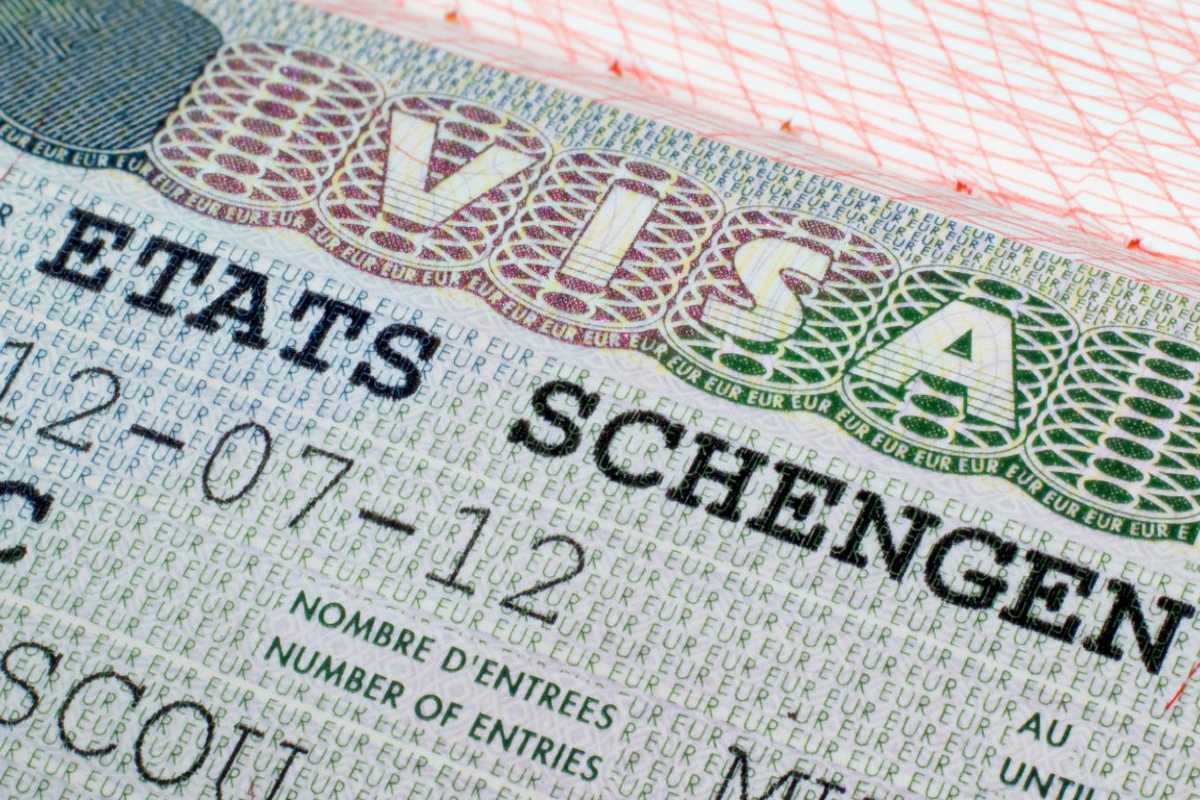Last Updated on 19/08/2025
Is Cyprus Joining Schengen in 2026? Update & Impact
As of 2025, Cyprus is in the final stages of joining the Schengen Area—the European Union’s zone of passport-free movement that spans 29 countries. For years, Cyprus has remained one of just two EU countries (alongside Ireland) outside this powerful alliance. But that’s about to change.
With the full support of the Cypriot government and strong progress in meeting EU technical and security standards, Cyprus is targeting full Schengen membership in 2026. This transition represents a major milestone—not only for local governance and EU integration, but also for travelers, real estate investors, and businesses operating across Europe.
In this guide, you’ll learn:
What the Schengen Area is and why it matters
Cyprus’s current status and technical readiness
The expected timeline for accession
How ETIAS will change travel rules
The impact on tourism, property values, and investor mobility
From border controls to visa-free travel rights and strategic investment shifts, the upcoming changes are significant. Whether you’re planning to travel, invest in Cyprus real estate, or simply stay informed, this comprehensive article breaks down everything you need to know.
What Is the Schengen Area & Why It Matters
The Schengen Area is one of the most transformative achievements of the European Union. Established by the Schengen Agreement in 1985 and implemented in 1995, it allows people to travel freely across member countries without internal border checks. Today, the Schengen Zone includes 29 European countries, encompassing nearly all EU states as well as non-EU nations like Norway, Switzerland, Iceland, and Liechtenstein.
This zone enables:
Seamless travel for tourists, businesspeople, and residents
Standardized visa rules for third-country nationals
Shared border security and intelligence among members
Enhanced economic integration through simplified mobility
For EU citizens and visa holders, it means the ability to travel across vast regions of Europe as easily as moving between cities within a single country.
Why Cyprus Is Still Outside Schengen
Cyprus joined the European Union in May 2004, but it has remained outside Schengen due to a combination of political and logistical challenges. Chief among them is the island’s unique situation—its division between the internationally recognized Republic of Cyprus and the self-declared Turkish Republic of Northern Cyprus. This division complicates the implementation of Schengen rules, particularly in terms of border management and legal jurisdiction.
Despite these hurdles, the Cypriot government has actively worked to meet all technical requirements for Schengen accession, including data protection, border infrastructure, and security cooperation.
The Strategic Importance of Joining
Becoming a Schengen member will significantly raise Cyprus’s profile within the EU. It will:
Strengthen ties with fellow EU nations
Open up seamless mobility for its citizens and residents
Increase tourism and investment confidence
Position Cyprus as a more attractive base for international businesses
In short, Schengen membership isn’t just about free travel—it’s a strategic shift that impacts economics, security, diplomacy, and investment.
Cyprus’s Progress Toward Schengen Accession
After years of preparation, Cyprus is now closer than ever to joining the Schengen Area. The island nation has completed all technical requirements and is in the final political and diplomatic phases of the accession process. Here’s a breakdown of the major milestones Cyprus has achieved on its path toward full membership.
Schengen Information System (SIS) Access – July 2023
A key turning point came on 25 July 2023, when Cyprus was granted full access to the Schengen Information System (SIS). This sophisticated EU-wide security database allows Schengen states to share critical information in real time—ranging from criminal alerts and missing persons to visa status and stolen property.
Gaining SIS access marked a major vote of confidence in Cyprus’s border security infrastructure and law enforcement capabilities. It confirmed that Cyprus has the technical systems in place to support Schengen cooperation.
Meeting the EU’s Technical Benchmarks
Before a country can join the Schengen Zone, it must pass stringent assessments across several categories. Cyprus has successfully fulfilled requirements in the following areas:
External border management: Upgraded entry points, surveillance systems, and personnel training.
Visa policy harmonization: Alignment of Cypriot visa processes with Schengen standards.
Data protection: Implementation of GDPR-compliant systems to protect traveler information.
Police and judicial cooperation: Secure communication and collaboration with other EU law enforcement bodies.
These steps were validated by a series of expert missions and evaluations conducted by EU institutions throughout 2022 and 2023.
Political Will and Government Commitment
Cyprus’s political leadership has made Schengen accession a national priority. Foreign Minister Konstantinos Kombos, in his 2023–24 action plan, named Schengen membership and visa liberalization as top foreign policy objectives. President Nikos Christodoulides has also reaffirmed that Cyprus is aiming for full accession by 2026, following completion of all technical steps by the end of 2025.
This unified governmental push has helped Cyprus gain broad support from EU partners, even as discussions around the island’s division and border logistics continue behind the scenes.

The Road to 2026 – What Happens Next?
With technical preparations completed, Cyprus is now in the final phase of its journey toward full Schengen accession. The focus has shifted from internal readiness to diplomatic approval and implementation logistics, with all eyes on the 2026 target date.
Final Steps to Full Membership
Cyprus must still complete two critical phases before officially entering the Schengen Area:
Unanimous Approval by the EU Council
All current Schengen member states must agree unanimously to allow Cyprus into the zone. This process involves detailed political negotiations and strategic diplomacy, as each country must be convinced that Cyprus can meet the high standards of border control and internal security.National Parliamentary Ratifications
After Council approval, each Schengen state must ratify the decision through its own legislative process. This ensures that the decision is politically endorsed across the EU, not just at the executive level.
While these final steps are procedural, they can take time—especially in a union that requires consensus among 29 countries.
2026: The Anticipated Accession Year
Cyprus aims to finalize its Schengen membership by the end of 2026, with all technical groundwork completed by late 2025. This timeline has been publicly confirmed by President Nikos Christodoulides, who stated that the government is working closely with the European Commission to meet all requirements.
The island’s geopolitical situation—particularly the unresolved status of the Turkish-occupied north—continues to present a unique legal and operational challenge. However, the EU has previously allowed partial Schengen implementations (as seen in Romania and Bulgaria), opening the door to a staged or regionally focused approach if needed.
Why This Timeline Matters
For travelers, businesses, and investors, understanding the Schengen accession timeline is crucial for planning. Once Cyprus becomes a member:
ETIAS requirements will apply
Stays in Cyprus will count toward the Schengen 90/180-day rule
Cyprus residency will provide broader mobility across the EU
Tourism and trade are expected to surge with easier cross-border access
As the 2026 deadline approaches, smart investors and global citizens are already positioning themselves to benefit from Cyprus’s integration into the world’s largest free-movement zone.
ETIAS and the New Travel Rules for Cyprus
One of the biggest practical changes coming with Cyprus’s Schengen accession is the implementation of ETIAS—the European Travel Information and Authorisation System. This new travel requirement will affect millions of travelers, including those visiting Cyprus, once the country formally joins the Schengen Area.
What Is ETIAS?
ETIAS is a pre-travel authorization system being introduced by the European Union. Similar to the U.S. ESTA system, ETIAS will be mandatory for visa-exempt travelers—such as citizens of Israel, the UK, the U.S., Canada, and over 50 other countries.
The system is expected to launch across the Schengen Zone in late 2026, around the same time Cyprus completes its accession process.
Key facts about ETIAS:
Cost: €7 per traveler (free for minors and seniors over 70)
Validity: 3 years or until passport expiration
Applies to: Short stays up to 90 days in any 180-day period
Processing: Usually automatic within minutes, but may take up to 30 days in rare cases
How ETIAS Affects Cyprus Travel
Once Cyprus joins the Schengen Area, it will be integrated into the ETIAS system. This means:
All visa-exempt third-country nationals (e.g., Israelis, Brits, Americans) will need ETIAS authorization before traveling to Cyprus.
Time spent in Cyprus will count toward the 90/180-day Schengen limit.
ETIAS approval will allow free movement into Cyprus from other Schengen states without additional border checks.
For many travelers, this will simplify the logistics of combining Cyprus with broader European trips. However, it will also require more pre-trip planning and compliance.
What About Current Entry Rules?
Until Cyprus officially joins Schengen and ETIAS becomes active:
Cyprus maintains its own visa and border policies
Visitors from many countries (including Israel and the UK) can still enter Cyprus visa-free under national rules
Cyprus is not yet covered by ETIAS, but this will change post-accession
In the coming year, travelers and investors should stay updated on policy changes and prepare to adapt as Cyprus transitions into full Schengen participation.

Schengen Membership’s Impact on Real Estate and Investment
Cyprus’s upcoming entry into the Schengen Area is more than just a shift in travel policy—it’s a transformative event for the real estate market, investor mobility, and international confidence in the island’s economic outlook. For property developers, high-net-worth individuals, and residency seekers, Schengen membership is a powerful value multiplier.
Increased Demand from International Buyers
The ability to move freely across 29 Schengen countries without visa friction will make Cyprus an even more attractive base for global citizens. Once Schengen rules apply:
Cyprus residency permit holders (including Golden Visa investors) will gain mobility across all Schengen states
Non-EU buyers will see greater flexibility and freedom of movement, which increases the value proposition of Cypriot residency
Real estate becomes not only a lifestyle purchase—but a strategic asset for global mobility
This enhanced appeal is expected to drive up demand for properties in prime areas such as Limassol, Nicosia, Larnaca, and Paphos.
Higher Property Values and Yields
In countries like Portugal, Greece, and Malta, joining or integrating into the Schengen Zone has historically increased property values due to surging foreign interest. Cyprus is poised for a similar effect, especially with its:
€300,000 minimum investment threshold for residency
Favorable tax regime and low corporate rates
Strategic location between Europe, the Middle East, and Asia
As tourism and long-term residency demand grow, rental yields are also likely to rise, particularly in urban and coastal hotspots.
Strategic Timing: Invest Before the Wave
Now may be the best time to act. With Cyprus’s full Schengen entry not expected until late 2026, early investors still benefit from:
Pre-accession pricing before full mobility perks drive up demand
Access to current residency schemes under existing terms
A head start on preparing for post-accession opportunities across the EU
It’s worth noting that EU institutions are placing increasing scrutiny on Golden Visa programs across member states. While Cyprus’s residency program remains active and compliant, future changes are possible. Investors seeking to lock in current benefits and mobility advantages are moving now—before post-Schengen adjustments tighten requirements.
What You Should Do Now: Travel, Invest, Prepare
With Cyprus on track to join the Schengen Area in 2026, the window of opportunity is now open for proactive travelers, investors, and global citizens. Whether your goal is greater mobility, strategic investment, or early access to EU residency benefits, preparing ahead of time ensures you’ll be ready to capitalize on Cyprus’s transition.
For Travelers: Monitor ETIAS and Plan Ahead
If you’re a citizen of a visa-exempt country (such as Israel, the UK, or the U.S.), you can still visit Cyprus under the country’s current entry rules. However, once Cyprus enters Schengen:
You’ll need to apply for ETIAS before arrival
Your stay in Cyprus will count toward the 90-day limit within the Schengen zone
You’ll be able to travel seamlessly between Cyprus and 28 other countries with no internal border checks
Now is the time to familiarize yourself with ETIAS requirements and plan your future travel accordingly.
For Investors: Act Before Policy Shifts
Cyprus’s residency-by-investment program currently allows non-EU nationals to gain permanent residency through a real estate purchase of €300,000 or more. Once Cyprus joins Schengen, this residency will offer far greater mobility and prestige, as holders will enjoy:
Visa-free access to the entire Schengen Area
Increased liquidity and appeal of Cypriot properties
Greater alignment with EU residency privileges
Smart investors are already positioning themselves to secure property and residency before any program tightening or price inflation occurs post-accession.
For Professionals and Expats: Use Cyprus as Your Schengen Gateway
Cyprus is already a hub for tech startups, professional services, and global remote workers. Schengen membership will supercharge this position by:
Making Cyprus a launchpad into the European market
Removing travel friction for client meetings, networking, or EU expansion
Offering tax-efficient residency in a highly livable Mediterranean destination
If you’re considering relocation, dual residency, or cross-border operations, this is the moment to align your strategy with the 2026 Schengen milestone.
Conclusion: Cyprus and Schengen – A Transformational Milestone
Cyprus is on the brink of a new era. With full Schengen membership expected in 2026, the country is set to become an even more strategic player within the European Union. For travelers, investors, and global citizens, the implications are profound:
Visa-free travel across 29 countries
Enhanced residency value for non-EU nationals
Increased real estate demand and property appreciation
New travel protocols under ETIAS for all short-stay visitors
By completing all technical requirements, gaining access to the Schengen Information System, and committing politically to EU standards, Cyprus has proven its readiness. What remains is the final round of Council approval and national ratification—expected to be completed by the end of 2026.
If you’re planning to invest, relocate, or expand your European footprint, Cyprus offers a rare opportunity: enter before the border opens wider.
✅ Ready to Take the Next Step?


Contact Keynote Assets for strategic guidance on:
Cyprus real estate investments
Permanent residency acquisition
Pre-Schengen positioning for global mobility
→ Let’s prepare you for a borderless future—starting in Cyprus.




